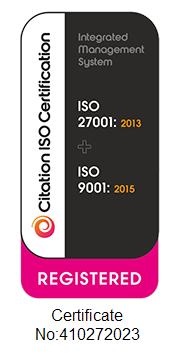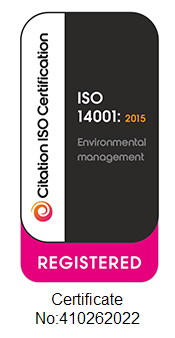THIS ARTICLE AT A GLANCE
CONTACT ETS
If you have any questions or would like to discuss further what you should be doing, ETS is here and willing to help.
Call 0117 205 0542
Email enquiries@energy-ts.com
Submit a contact form
CHECK OUR SERVICES
Dilemmas of a Building Energy Manager

The Challenges of a Building Energy Manager
The obstacles faced by building energy managers are constantly evolving. This is primarily because energy management challenges are always changing, meaning that managers need to keep ahead of the latest trends in order to ensure a building is running as efficiently as possible. Not only this, but the difficulty of implementing these changes can be seen as another obstacle in itself; especially if you’re working with a tight budget. It can be difficult to justify the costs of new technology to an Executive Board, even if it’s likely to save the company time and money in the long term.
The increased reliance on automation is another key concern for many energy managers. By passing off processes that were once handled manually, how do you avoid the risk of having an energy solution that is essentially a black box? It’s important for energy managers to maintain full visibility, and they risk sacrificing it when they decide to work with a new energy management service provider.
Navigating issues such as these can leave energy managers in frustrating positions, and so they need to collaborate with advisors who can guide them effectively.
What does the future of building energy management look like?
Smart buildings and automation are increasingly becoming the future of the energy management industry. We can expect to see huge advances in how companies conserve energy in their buildings over the next decade, just as we have seen in the last one. Though there are many companies that have resisted these advances, they are increasingly becoming the minority.
It’s a shift that’s inevitable, and so energy managers must face it head-on. Resisting is only likely to make the journey a more difficult one and increase the risk that a company will be left behind by its competitors. As a result, it’s essential to find the right energy service advisor to guide you through this shift and make it as smooth as possible. Luckily, the benefits of doing so are numerous.
What are the main benefits of smart buildings and new energy technology for energy managers?
While automation can be seen to risk turning your energy solution into a black box, with the right provider this energy management challenge can be easily avoided. At ETS we offer a turnkey service, allowing us to provide clients with full transparency on how their solution is working. We remotely monitor real-time energy consumption, meaning that changes to a strategy can be made swiftly when they are needed. Additionally, if there’s any confusion about any aspect of it, we will be on hand to explain things in a straightforward manner.
The rewards provided by automation are significant. With it in place, you can make sure that your building is only running on the minimum amount of energy needed. When systems aren’t required, they will be switched off. By having these activities carried out automatically, you reduce the margin for human error and save time and money.
There’s a clear, visible line from automation to cost savings, making it a solution that’s worth implementing in any company. This makes it easier to present to Executive Boards, with the benefits being easy to see.
What steps should businesses take?
While the benefits of automation are clear, the process of implementing it can still seem overwhelming. It’s important to remember that you aren’t alone. ETS is a trusted advisor when it comes to energy management and we can help you identify the right strategy to satisfy your specific needs. Companies and buildings come with a myriad of different operational requirements, meaning there isn’t a single solution that suits all of them. ETS can help you identify what your company needs to maximise its energy efficiency.
While energy managers can attempt to navigate the different options available to them by themselves, it can be a costly and stressful experience. Partnering with an organisation with a proven track record in energy management will give you peace of mind when it comes to selecting the right strategy.
Final thoughts
If you are looking for an energy management system that is tailored to your business needs, ETS can provide you with 25 years of experience in dramatically improving energy efficiency and reducing environmental impacts. Whether your businesses have individual assets or large international portfolios, ETS can assist you in saving substantial amounts of money while significantly reducing your carbon performance.
To discuss your requirements, get in touch. You can contact us by calling 0117 205 0542 or drop us an email at enquiries@energy-ts.com.
The Challenges of a Building Energy Manager
The obstacles faced by building energy managers are constantly evolving. This is primarily because energy management challenges are always changing, meaning that managers need to keep ahead of the latest trends in order to ensure a building is running as efficiently as possible. Not only this, but the difficulty of implementing these changes can be seen as another obstacle in itself; especially if you’re working with a tight budget. It can be difficult to justify the costs of new technology to an Executive Board, even if it’s likely to save the company time and money in the long term.
The increased reliance on automation is another key concern for many energy managers. By passing off processes that were once handled manually, how do you avoid the risk of having an energy solution that is essentially a black box? It’s important for energy managers to maintain full visibility, and they risk sacrificing it when they decide to work with a new energy management service provider.
Navigating issues such as these can leave energy managers in frustrating positions, and so they need to collaborate with advisors who can guide them effectively.
What does the future of building energy management look like?
Smart buildings and automation are increasingly becoming the future of the energy management industry. We can expect to see huge advances in how companies conserve energy in their buildings over the next decade, just as we have seen in the last one. Though there are many companies that have resisted these advances, they are increasingly becoming the minority.
It’s a shift that’s inevitable, and so energy managers must face it head-on. Resisting is only likely to make the journey a more difficult one and increase the risk that a company will be left behind by its competitors. As a result, it’s essential to find the right energy service advisor to guide you through this shift and make it as smooth as possible. Luckily, the benefits of doing so are numerous.
What are the main benefits of smart buildings and new energy technology for energy managers?
While automation can be seen to risk turning your energy solution into a black box, with the right provider this energy management challenge can be easily avoided. At ETS we offer a turnkey service, allowing us to provide clients with full transparency on how their solution is working. We remotely monitor real-time energy consumption, meaning that changes to a strategy can be made swiftly when they are needed. Additionally, if there’s any confusion about any aspect of it, we will be on hand to explain things in a straightforward manner.
The rewards provided by automation are significant. With it in place, you can make sure that your building is only running on the minimum amount of energy needed. When systems aren’t required, they will be switched off. By having these activities carried out automatically, you reduce the margin for human error and save time and money.
There’s a clear, visible line from automation to cost savings, making it a solution that’s worth implementing in any company. This makes it easier to present to Executive Boards, with the benefits being easy to see.
What steps should businesses take?
While the benefits of automation are clear, the process of implementing it can still seem overwhelming. It’s important to remember that you aren’t alone. ETS is a trusted advisor when it comes to energy management and we can help you identify the right strategy to satisfy your specific needs. Companies and buildings come with a myriad of different operational requirements, meaning there isn’t a single solution that suits all of them. ETS can help you identify what your company needs to maximise its energy efficiency.
While energy managers can attempt to navigate the different options available to them by themselves, it can be a costly and stressful experience. Partnering with an organisation with a proven track record in energy management will give you peace of mind when it comes to selecting the right strategy.
Questions about energy management technology?
If you have any questions regarding the energy needs of your business, our expert team at ETS are always here to help. You can contact us by calling 0117 205 0542 or by dropping us an email at enquiries@energy-ts.com.
Related Article
8 Ways Businesses Can Reduce Energy Use in the Workplace This Winter
Discover how to comply with ESOS Phase 4 and unlock energy-saving opportunities for your business. This guide explains the requirements, highlights key deadlines, and provides actionable strategies. Learn how energy audits, tailored action plans, and expert support can reduce costs, improve efficiency, and align your organisation with sustainability goals.
ESOS Action Planning: Complying with Phase 4 and Implementing Energy Saving Strategies
Discover how to comply with ESOS Phase 4 and unlock energy-saving opportunities for your business. This guide explains the requirements, highlights key deadlines, and provides actionable strategies. Learn how energy audits, tailored action plans, and expert support can reduce costs, improve efficiency, and align your organisation with sustainability goals.
Important Update: What You Need to Know about ESOS Phase 3
Time is ticking for the ESOS Phase 3 deadline. The Environment Agency announced that the reporting system is available now. For organisations qualifying for ESOS Phase 3, the deadline for submitting a compliance notification is 5 June 2024, and organisations should still look to meet this compliance notification deadline where possible.










































































